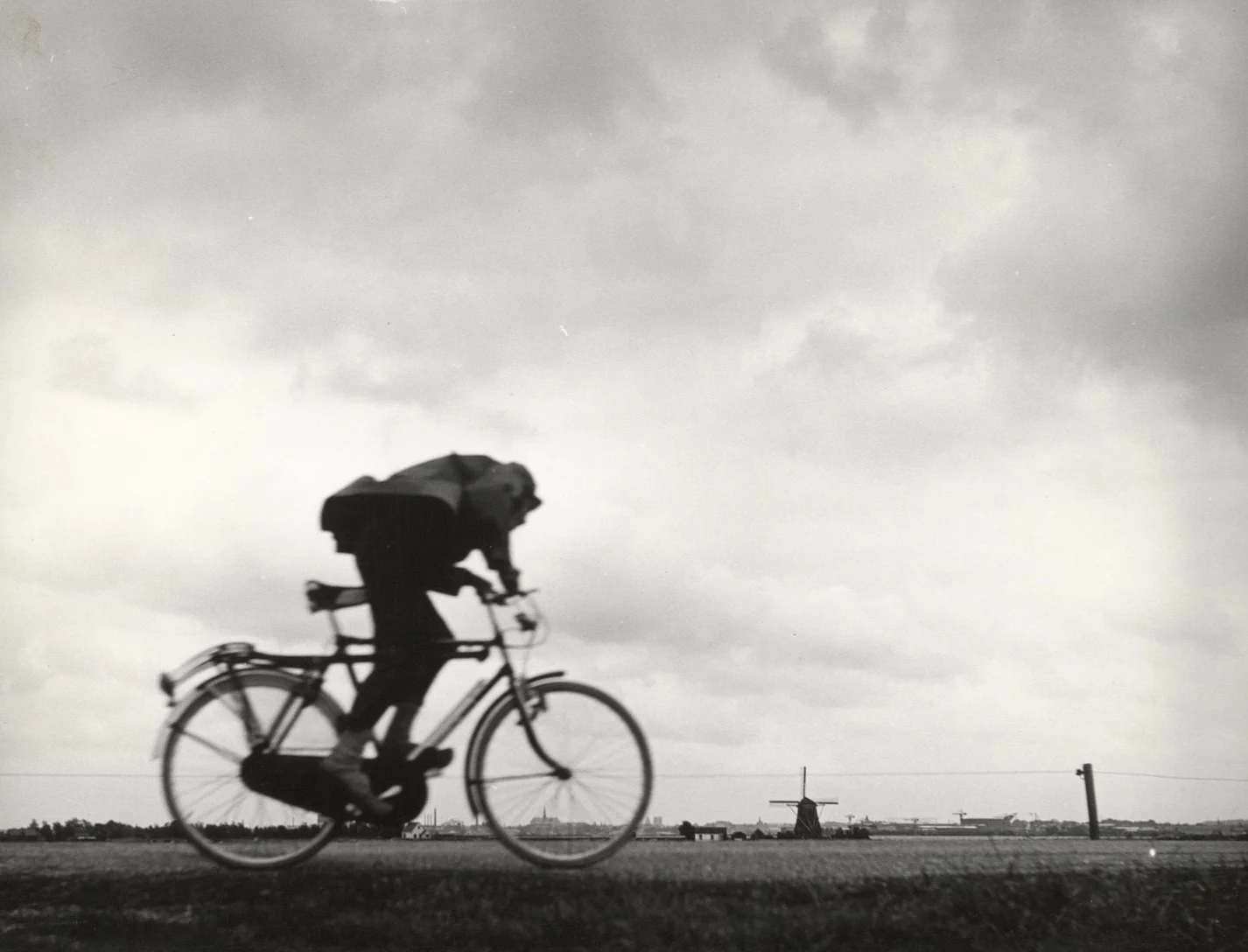The Affect of Cycling, Continued [From BA 43-400]
"Riding a bike can profoundly affect the way one sees the world."
from BA 43-400
How does riding a bicycle contribute to one’s sense of self-production?
In order words, do what extent do the rhythm, efficiency, balance, and simplicity that are innate to and required of riding a bicycle exist in relation to how we interact with the world?
Not to be reductive, but is not the body itself a site of production? Can we not make and destroy, be and do, think and generate? And does not the bicycle, if we ride it, work in correlation and connection with the body’s own movements?
Since a body that can propel itself (that is, under its own power) can be understood as momentarily self-sufficient, the cyclist experiences confident contentment in having acted to produce its self-transportation. That is to say the cyclist experiences the affects of its own balance and feels responsible for its own movement. At the point when one mounts a bicycle, there is a reconfiguration of the human body’s potential, and through the actualizing of that potential, the human is deeply affected.
Thus, insofar as cycling effects the human body, it in turn affects that body’s sense of itself.
Bicycling is an exhausting, potentially dangerous and demanding activity. Cycling requires the rider to simultaneously employ its various physical and mental faculties: to remain balanced, (usually) in motion, moving forward by way of a rhythmic, power-producing pedal stroke that needs directing by leaning, steering, and even sometimes counterbalancing. A cyclist’s encounter with geography is shaped and constantly remade by the sheer physicality and exhilaration of the bike ride itself.
It is imperative that you know before you begin to bicycle that the riding of a bike can profoundly affect the way one sees the world.

